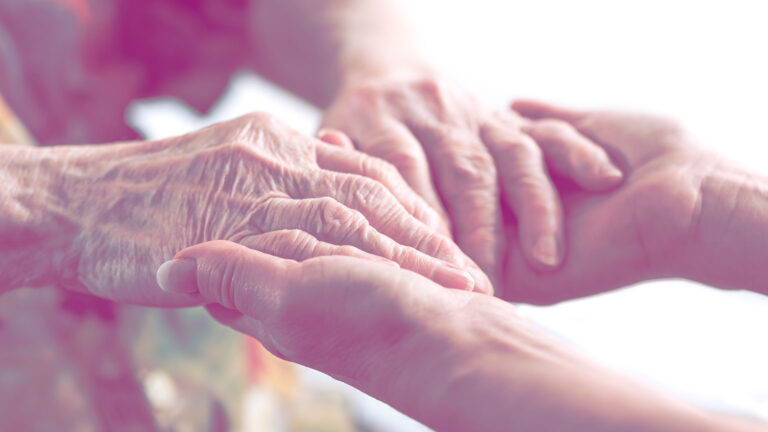Many people are now making an Advance Directive which stipulates what kind of end of life care they would like to receive if their quality of life was to suffer due to a debilitating or terminal illness or accident. These are regarded as legal documents provided they are worded correctly and registered with the GP.

It is essential that relatives are informed of this Advance Directive so they can support medical staff to make the right end of life choices should the patient not be in a fit state to make their wishes known.
It is equally important to understand that any decision to stop life-extending treatment is jointly made with doctors and no pressure will be put upon you as a relative for this to happen. Medical staff will usually try to understand your thoughts, but they are not asking for your permission to withdraw life-prolonging treatments.
It can be very upsetting to be involved in such discussions on behalf of someone who is unable to make their desires known for themselves. So, take your time to talk through any concerns you may have with medical staff and also, if appropriate, with other relatives.
Once a decision to withdraw life-prolonging treatment has been reached, your relative will be placed on an end-of-life care pathway and this will be clearly stated on their medical notes.
When initiating an end-of-life care pathway, medical care focuses on providing essential medication for the relief of distressing symptoms (pain-relief, anti-sickness drugs, etc) and nursing care that making the person as comfortable as possible. This may also involve inserting a catheter into the bladder and suction to ease the secretions in the back of the throat when the person is no longer able to cough.
It is difficult to gauge how long someone may take to die. For those sitting with the dying, it can often feel like a very long time. You may also at times feel distressed – and even guilty – about your relative being on an end-of-life care pathway. However, it may help you to know that you are respecting the wishes of the dying person and that you are supporting medical staff to do everything possible to ease their end of life.
Family Dynamics
The death of a close relative is a critical time for families. Although it usually falls to the immediate next of kin to provide support and care, the dying process can bring about a togetherness within the extended family unit that usually only happens on anniversaries and holidays. This togetherness can be – although sad – a wonderful shared experience for all concerned.

Having said that, death – especially of the second parent – can bring unresolved feuds and resentments to the surface, which may have lain dormant for years. So, this may be a good time to resolve these past hurts and grievances. However, do be aware that emotions will be running high and tempers can easily fray.
Family members can react very differently. For example:
- Some will have a warm relationship with the dying person. Others may be harbouring dislike, grudges, anger or fear.
- Some will freely embrace what is happening. Others may want to deny that the person is dying.
- Some will be happy to agree with medical staff to stop life-prolonging treatment. Others may not want this.
- Some may feel horrified or even sickened by the person’s deterioration and find it difficult to sit with them.
- Relatives who live at a distance may feel guilty for not being there. Others may avoid contact due to family conflict.
- Relatives who care for the dying person may feel their own life has been put on hold and become angry and resentful with the rest of the family for not pulling their weight.
- Sibling rivalry may surface and divide loyalties, causing further resentments and disputes.
- Some may be holding onto secrets that no-one else knows and this is increasing their distress. Secrets may also be exposed. It is not that unusual for unknown children or even spouses to suddenly appear after someone dies.
So, be prepared for this to be an intense time which needs patience, understanding and the willingness to communicate openly and truthfully with the rest of the family. If things become fraught, do seek help and support for someone you trust or from counselling or bereavement organisations such as Cruse Bereavement Care.
Thank you for visiting this page. You may be interested in my books on death and dying. You can also listen to a host of fascinating guests on my Embracing Your Mortality podcast.
















